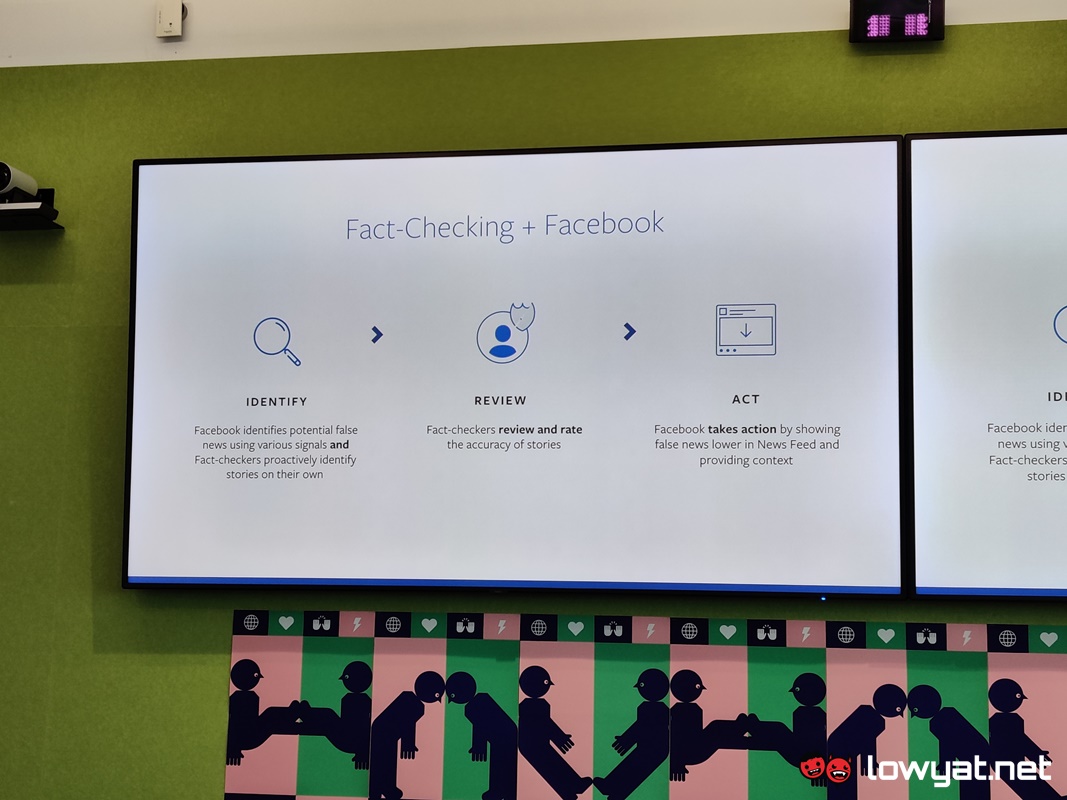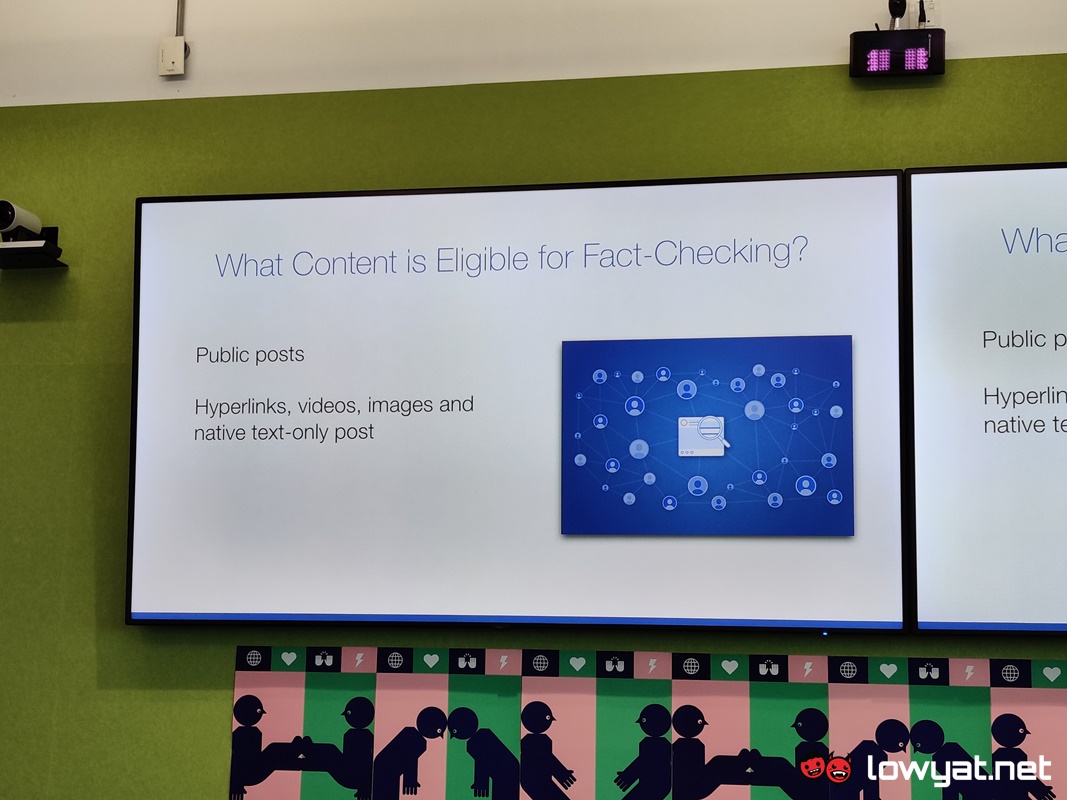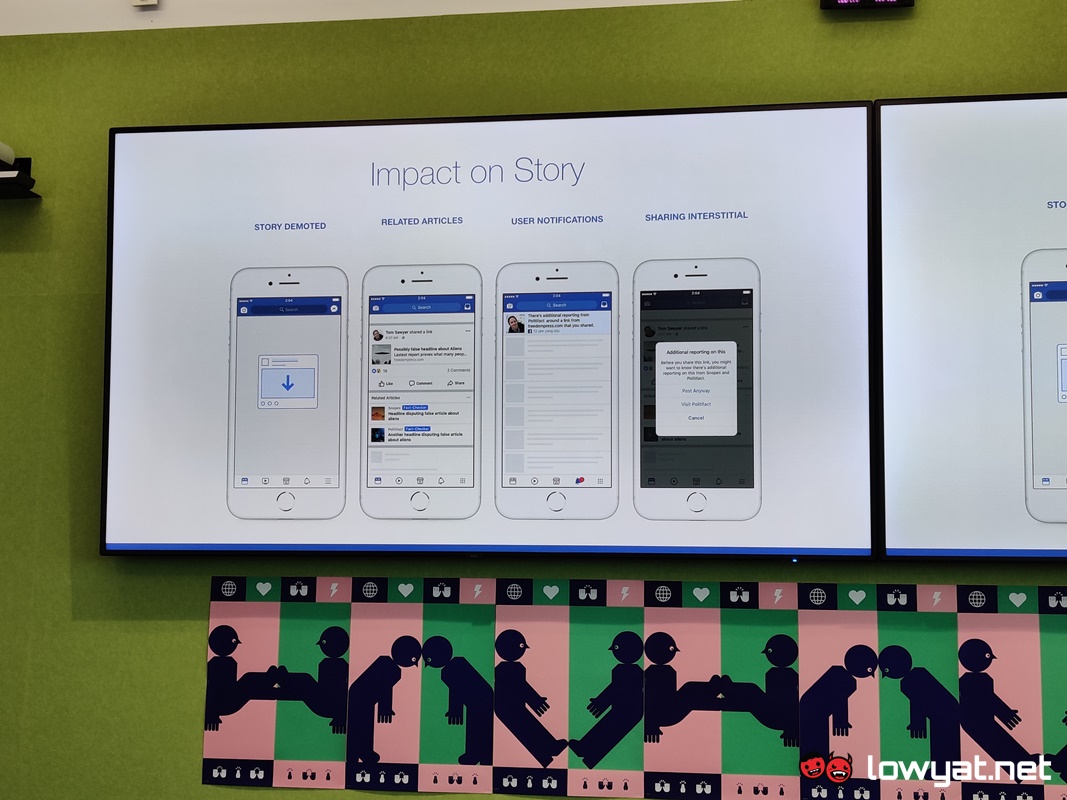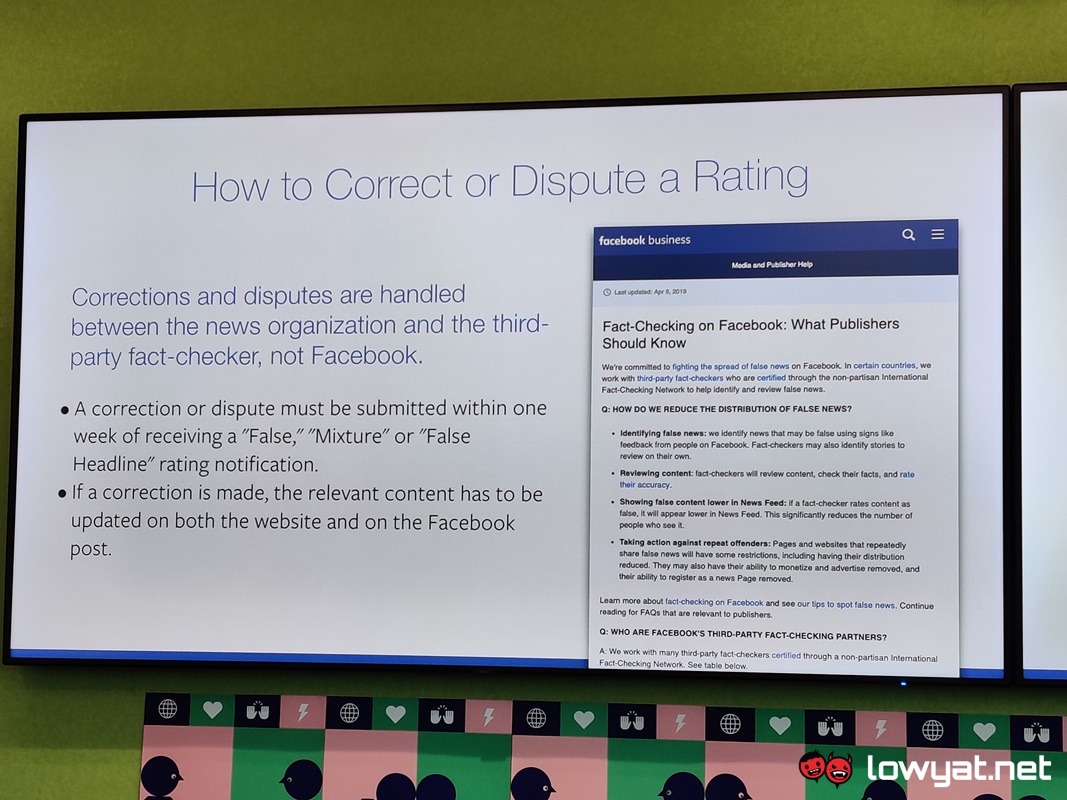Starting today, AFP will sift through news and material and determine the accuracy of the stories posted on Facebook, including videos and photos. For the record, AFP is one of the press bodies chosen by the International Fact Checking Network (IFCN), an independent body separate from Facebook. This is done to ensure that Facebook has no influence over the posts that get flagged as a spread of “fake news”. Facebook also took the time to explain how the system works. First, a post is identified and flagged down through signals – a combination of feedback and comments made by the Facebook community. That feedback compilation is done handled by Facebook’s AI machines, before ultimately being handed over to the AFP.
AFP will then fact-check the content posted on Facebook, in both English and Malay, and then determine the veracity of the post. If the post turns out to be fake, the story in it is then flagged, and the domain that posted will be reprimanded with a demotion, among other penalties.
If the domain sharing a post does not contain any elements of a “fake news” posting, they can simply dispute it with Facebook. If you intend on doing this, be warned that while undergoing the dispute proceedings, owners of the domain are advised not to delete the posting for a couple of reasons.
Firstly, it serves as evidence in their case. Second, even if you did delete it, the domain demotion would still be in place. On that note, it should also be pointed out that a domain that has been demoted will also have their abilities to boost and monetise votes rescinded for a period of three months.



